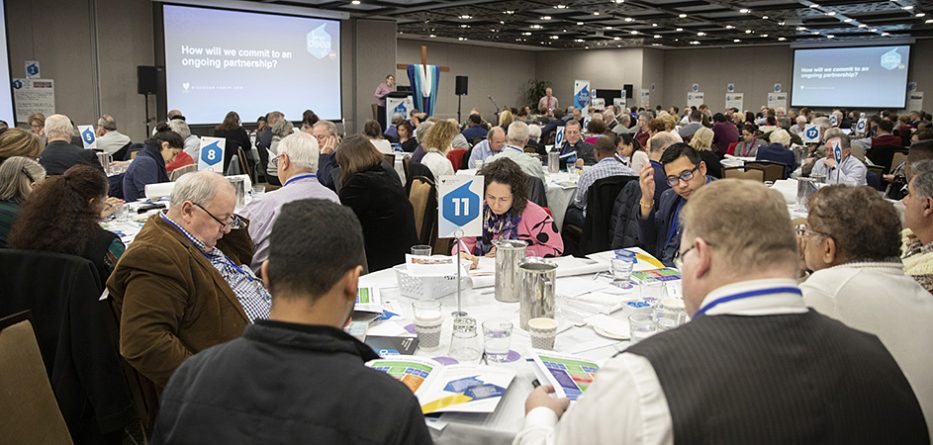Collaboration is one of the buzz words of Church life. Leaders want to be known for good consultation and engaging with their communities and teams. Yet collaboration means different things to different people.
For instance, just because a leader consults widely before making a decision about a goal does not mean they are collaborating. This is because the community or team may not be invested in the actual goal the leader is seeking feedback about. In addition, the leader may listen to a wide range of views and then simply push on with an approach to the goal that they think is best.
An example of poor collaboration plagued international development efforts in years gone by. Governments and charities offering development of economically deprived peoples in other countries would build schools and hospitals and other facilities. However, often these buildings would become run down and unutilised. It was so frustrating. All this labour and money and goodwill was going to waste. The local people had expressed support for the project and were eager for its development, so what had gone wrong?
Community engagement plans are far more involved than simply asking people what they think of a proposed plan and then implementing it. In the case above, the typical problems were a lack of real dialogue. Local people, of course, welcomed development, but perhaps were not sufficiently informed about what was being proposed.
Equally, without listening to the local people and understanding their own needs, none of the options offered for development might properly respond to the challenges faced by the community. No point building a school or hospital if staff cannot be trained and supported. No point staffing a school if the locals are so poor that the children need to be working rather than pursuing an education.
In our own Catholic communities we can fall into similar traps with our planning. We build a new church, hoping the people will come. We employ a youth minister to engage young people. We invest in some latest faith formation program, believing it will enrich the community. Our leadership team or advisory groups may have all nodded their heads at such initiatives. So why are the results not what we expect?
Community engagement plans involve a disciplined process whereby the community are both listened to and equipped with all the data they need to make good decisions.
In our Catholic setting, this often requires good formation as well as information about the issues at hand. In this way, alternatives can be considered. Critically, the community then remains involved throughout the process.
If there is a decision-making body going ahead with the proposal, they are keeping the community involved and seeking their feedback along the way. This includes ensuring that what is being developed matches the hopes and ways people are seeking to engage.
Collaboration takes this a step further. The decision-making team relinquishes their ownership of the overall plan and opens it up for community investment. It is very difficult for this to happen in Catholic circles, given our strong hierarchical tradition. However, a leader does not relinquish their authority when they open up a decision to consensus by a broader group. They are actually reflecting good synodal practices.
Finally, the community are empowered. By being informed and consulted, involved throughout the process, and ultimately enabled to collaborate in the decision, the resulting goals will have a far greater chance of being realised. This has certainly happened in international development.
Nowadays, local products are sought, locals are engaged in the development process, and locals are equipped to continue the project in a sustainable fashion both for their community and for the environment.
If we are serious about cooperating with the Holy Spirit in bringing God’s reign to life more strongly in our local area, let us engage our people as fully as we can in this mission, bringing the best wisdom of community engagement planning to our efforts.
Contact the Pastoral Planning Office on (02) 8838 3441 for support with your parish needs.
Richard McMahon is the Director of Pastoral Planning & Implementation for the Diocese of Parramatta.








